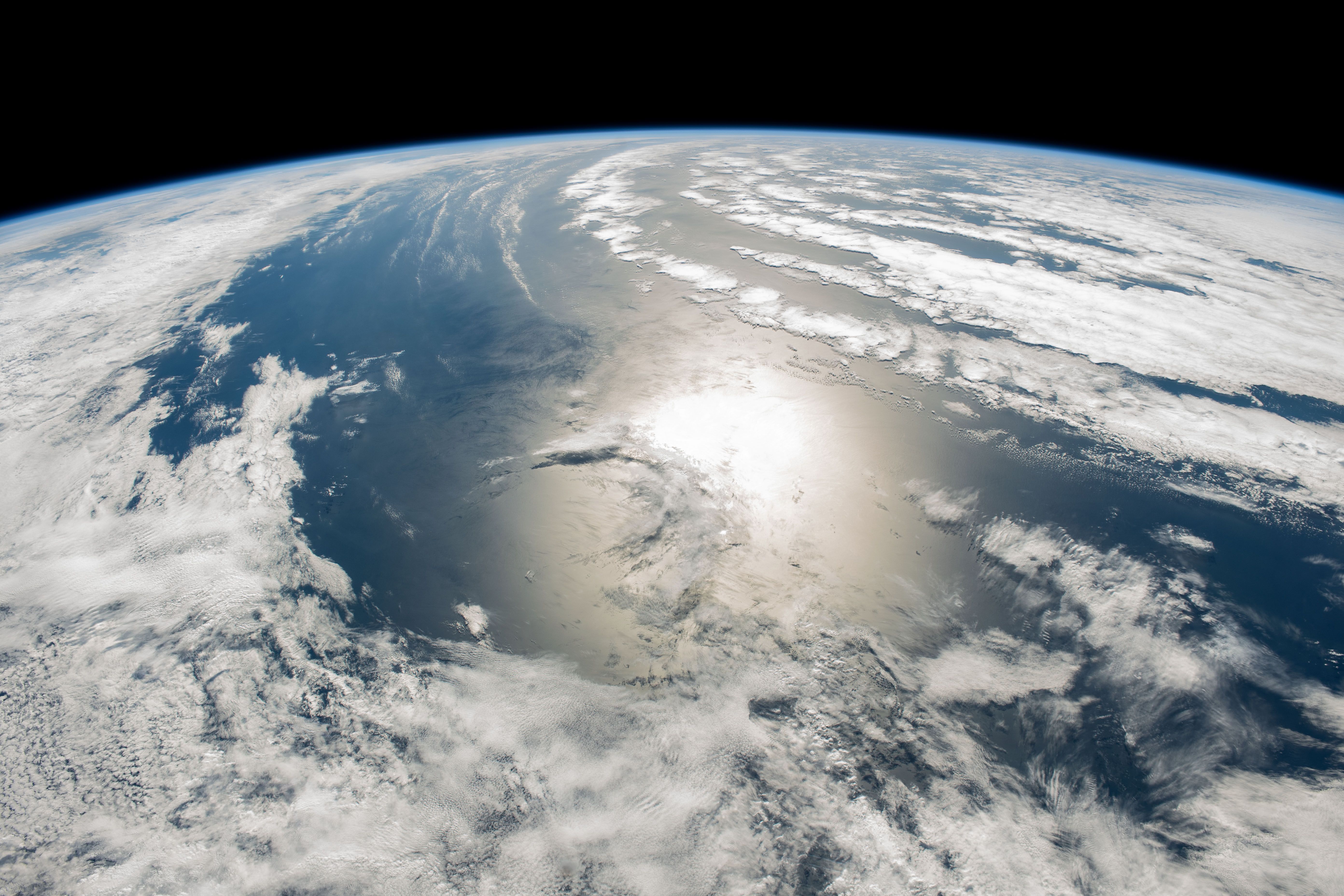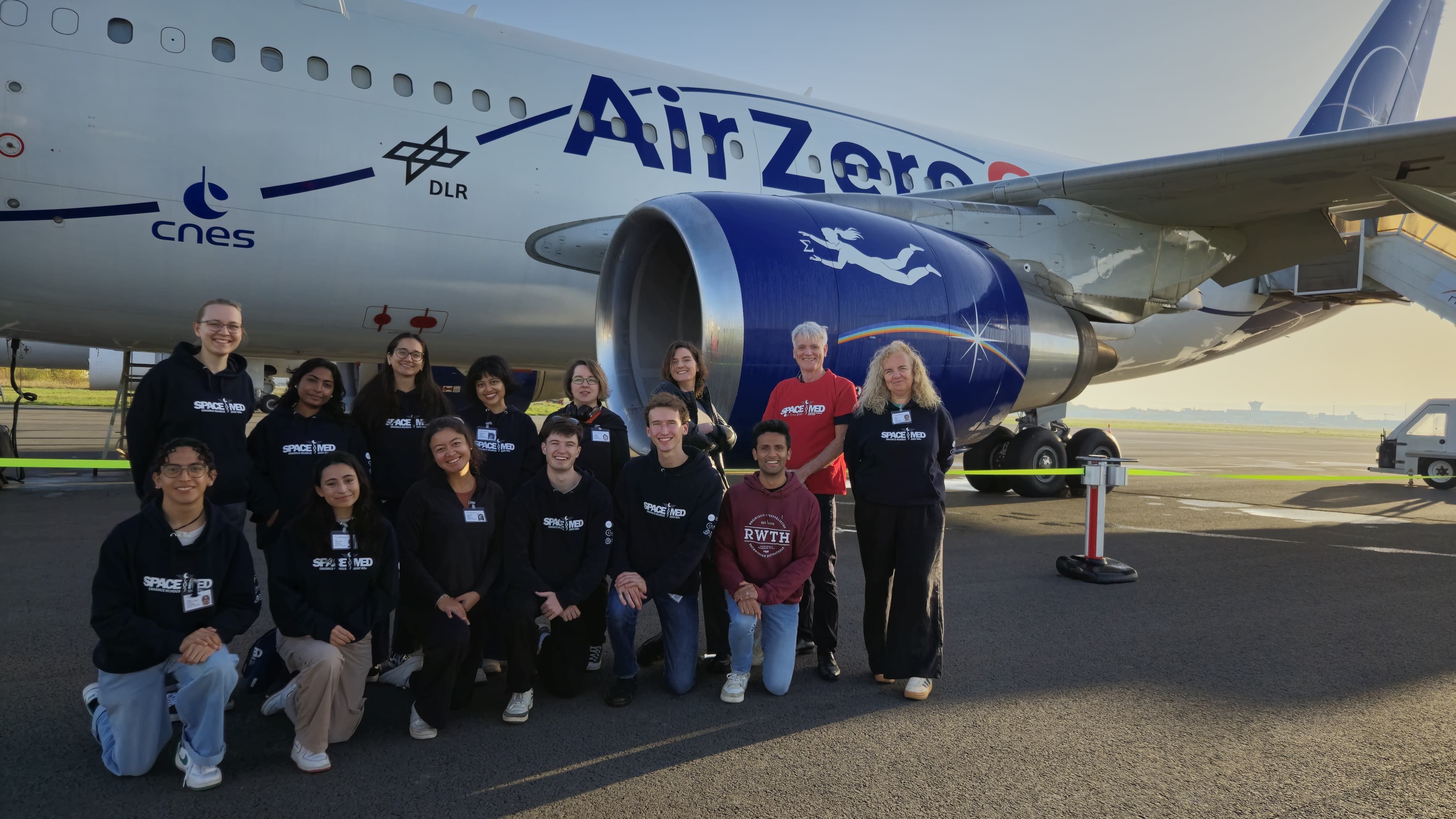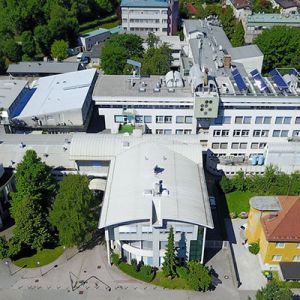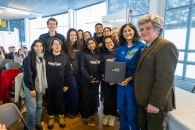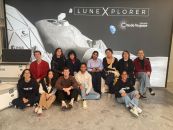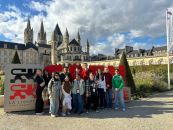Programme outline
SPACEMED is a 2-year full-time European Master’s programme offering a unique integrated inter- and multidisciplinary study on the effects of extreme environments, particularly space flight, on humans. The curriculum places a strong emphasis on hands-on activities in state-of-the-art laboratories and on field studies, including space flight analogues (i.e., parabolic flights, Antarctic habitats, experimental bed rest studies, etc.), and extreme environments, such as those experienced at high altitude, underwater, and in hot and cold, dry and humid environments.
2 Years
SpaceMed is a 2-year full-time European Master programme (2 x 60 credits).
It is offering a unique integrated inter- and multidisciplinary study on the effects of extreme environments, particularly space flight, on humans. The curriculum places a strong emphasis on hands-on activities in state-of-the-art laboratories and on field studies, including space flight analogues (i.e., parabolic flights, Antarctic habitats, experimental bed rest studies, etc.), and extreme environments, such as those experienced at high altitude, underwater, and in hot and cold, dry and humid environments.
3 Universities
The programme is organized by 3 European universities:
- Charité – Universitätsmedizin Berlin (Germany),
-
Mednarodna podiplomska šola Jožefa Stefana (Slovenia),
- Université de Caen Normandie (France).
Master Thesis
Students will perform their master thesis at one of the partner institutions or with one of the numerous associated partners (incl. industry, space agencies and research institutions).
Target Students
Candidate students must hold either a Bachelor’s degree in life sciences, psychology or kinesiology (180 ECTS), a Master's degree in engineering, a medical degree, or a degree characterized by significant study of humans in space or extreme environments.
Why study in the SPACEMED master?
Why study in the SPACEMED master?
-
Small class sizes and close interaction with the teaching staff.
-
Science teaching and training with innovative and interdisciplinary methodologies.
-
Research projects (laboratory and field studies) involving experimental work, data analysis and interpretation.
-
Workshops bringing together students, academics and industry professionals.
-
Involves students in space projects supported by German, French, European and US space agencies.
-
Provides students with an international network and an integrated multicultural and linguistic experience.
-
Immersion in at least three European cultural regions (France, Germany, Slovenia) during the course of the study.
-
Attractive scholarships.
Applications 2026 - Calendar
The application platform (2026 intake) is open from October 22nd 2025 (8.00am CET) to January 22nd 2026 (11.59pm CET)
News
-
![]()
A look back at our SpaceMed students' first week in Charité - Universitätsmedizin Berlin : March 3rd to 7th 2025!
This Berlin Induction Week was punctuated by several highlights : an Opening Ceremony, a Charité Campus Tour, German lessons to give students the best possible insight into the German language and culture, an immersive Eonarium light show in the M... -
![]()
Space Flight week - October 28th > 31st 2024
As part of their training, students had the opportunity to travel to Toulouse and Bordeaux. In particular, they visited the City of Space, the National Space Agency (CNES) and the Novespace facilities. -
![]()
Welcome to the SpaceMed #1 intake
On september 30th we kicked off our new Erasmus Mundus SapceMed Master's programme with a class of 12 students coming from 9 different countries (Canada, England, France, Germany, India, Indonesia, Mexico, the Nertherlands and Russia!)


Views and opinions expressed are however those of the author(s) only and do not necessarily reflect those of the European Union or the European Education and Culture Executive Agency (EACEA). Neither the European Union nor EACEA can be held responsible for them.
Powered by eMundus
